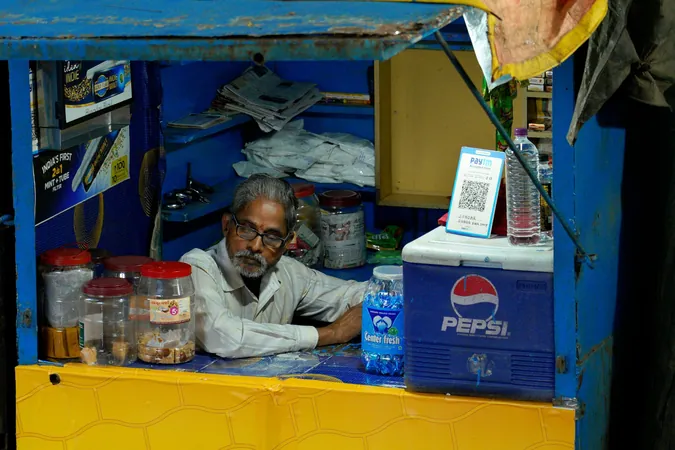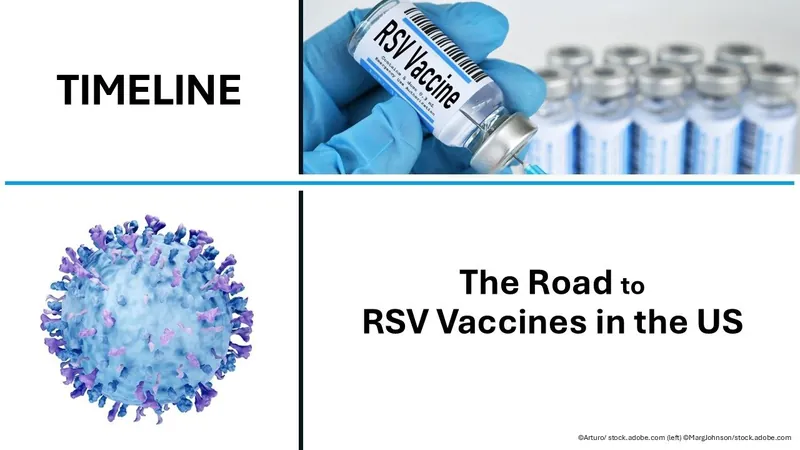
The Hidden Crisis: How Food Insecurity Fueled Tuberculosis Deaths During the COVID-19 Pandemic
2025-04-10
Author: Wei
A Pandemic Within a Pandemic
As COVID-19 swept through the globe, it didn't just disrupt our daily lives—it also launched tuberculosis (TB) mortality rates to frightening new heights, witnessing an increase for the first time in two decades. While many pointed fingers at lapses in healthcare services like diagnostic delays and treatment interruptions, a groundbreaking new study unveils a sinister factor that has been largely ignored: food insecurity.
Shocking Statistics from Southern India
Research conducted by teams from Boston University, Jawaharlal Institute of Postgraduate Medical Education and Research, and London School of Hygiene and Tropical Medicine revealed shocking revelations during the pandemic's lockdowns in Southern India. Out of the households surveyed, a staggering 78% reported having no income, 67% turned to distress financing just to scrape together meals, and 44% altered their diets—often opting for less nutritious substitutes or simply less food overall.
The Deadly Link Between Nutrition and Tuberculosis
The implications of these findings are grave, especially since the connection between undernutrition and the progression of tuberculosis is well-documented. "For the duration of the pandemic, discourse centered around service disruptions as the primary reason for increased TB mortality, but our research underscores another critical factor—nutritional shocks," stated Dr. Pranay Sinha, the study’s lead author and assistant professor at Boston University’s Chobanian & Avedisian School of Medicine.
A Life-saving Intervention
This eye-opening study, published in PLOS Global Public Health, was part of the TB LION project, which provided nutritional support to household contacts of TB patients in Puducherry and Tamil Nadu, India. Those who benefitted from calorie-rich food baskets not only reported improvements in food security but also experienced weight gain and enhanced overall well-being. This highlights the critical importance of food assistance in times of health crises.
A Call to Action for Future Crises
The study's authors emphasize a significant oversight in pandemic response strategies. Dr. Sinha remarked, "While it’s essential to focus on immediate crises like COVID-19, we must equally recognize and address the nutritional shocks that can worsen situations, especially for vulnerable groups. Nutritional support should be an integral part of emergency response strategies, not an afterthought."


 Brasil (PT)
Brasil (PT)
 Canada (EN)
Canada (EN)
 Chile (ES)
Chile (ES)
 Česko (CS)
Česko (CS)
 대한민국 (KO)
대한민국 (KO)
 España (ES)
España (ES)
 France (FR)
France (FR)
 Hong Kong (EN)
Hong Kong (EN)
 Italia (IT)
Italia (IT)
 日本 (JA)
日本 (JA)
 Magyarország (HU)
Magyarország (HU)
 Norge (NO)
Norge (NO)
 Polska (PL)
Polska (PL)
 Schweiz (DE)
Schweiz (DE)
 Singapore (EN)
Singapore (EN)
 Sverige (SV)
Sverige (SV)
 Suomi (FI)
Suomi (FI)
 Türkiye (TR)
Türkiye (TR)
 الإمارات العربية المتحدة (AR)
الإمارات العربية المتحدة (AR)